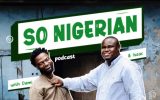by Nnaemeka Meribe
A million Fani-Kayodes cannot create a gulf between us. Lagos and the Yoruba need people from other parts of Nigeria just as others need Lagos and the Yoruba. As the cliché goes, no man is an island.
In Igbo land, there are people referred to as “ori n’ crisis” (someone who makes a fortune during crisis). Former Minister of Aviation and serial ranter, Chief Femi Fani-Kayode, is obviously one of such people. Since the late President Umaru Yar’Adua turned him into a political destitute he has found a new pastime: Stoking the fire of hatred. He now specialises in creating a Yoruba-versus-others scenario with a veiled intention of cashing in on it to rehabilitate himself politically.
His penchant for ranting and hating whenever the Igbo-Yoruba online cat-fight (which seems to have become the new normal) resurfaces— or whenever anybody from any other part of Nigeria says something he considers an affront to the Yoruba— is becoming legendary. He uses his Facebook account and other phoney accounts to up his hate-preaching game. The most distressing and insulting thing about this wannabe Yoruba leader is that in each of his rants, he tries to give the impression that ‘I am not a tribalist but a great believer in Nigeria’.
He may not be wrong. But one thing I have learnt in Nigeria is that the worst of tribal bigots amongst us are those who say every now and then that ‘I am not a tribalist’. To see if this man, who has become notorious for talking before thinking, is a tribal bigot, I will highlight some of his past actions and allow Nigerians to form an opinion about him.
An article written by a former general manager administration or FAAN, Bitrus Ogba, and published by Vanguard newspaper on March 14 with the headline, ‘Oduah and aviation industry appointments’ alleged that “Chief Femi Fani-Kayode employed about 30 persons in FAAN. 16 of them were made assistant general managers, deputy general managers and general managers, while the rest were absorbed in other ranks.
“These people did not have any aviation experience before they were employed. In fact, most of them came from local government councils and others were hangers-on. These 30 people came from Osun and Ogun State…That is the way he deployed the same number of people to other aviation agencies.” Indeed, Fani-Kayode is no tribalist— but he has yet to deny this allegation. When a former military governor of the North-West State, Alhaji Usman Faruk, claimed in August 2012 that the north’s military strategy won the civil war for Nigeria, our history master, Fani-Kayode, rather than ignore the old man, countered: “The truth is that it was the 98 per cent Yoruba Third Marine Commando under the able command of Brigadier-General Benjamin Adekunle that liberated the mid-west and the southern minorities from the Igbos during the civil war and not the north”.
He added: “Had it not been for that strong support from the Yoruba and particularly the efforts of the predominantly Yoruba Third Marine Commando who pushed the Biafrans out of the mid west, the south south and back into the east and who eventually went into Igboland, occupied it and took the surrender of the Igbos, there is no way that Nigeria could have won the war… … The arrogance of Alhaji Faruk is sickening and this is especially reflected by the contemptuous manner he referred to the Yoruba in his interview”. Indeed, Fani-Kayode is a believer in Nigeria!
Again, in October last year this ‘detribalised’ Nigerian showed his commitment to a united Nigeria when he ranted on his Facebook wall: “…If you want to know who started tribalism in southern politics and the politics of the southern protectorate of Nigeria, it was not the Yoruba or the southern minorities but the Igbo. The excesses of the Igbo State Union and their treatment of the southern minorities and the Yoruba from 1943 till 1967 were completely unacceptable. The rest of the south was prepared to accept the Igbo as equals with open arms but they were not prepared to be politically dominated or conquered by them”.
Perhaps, in Fani-Kayode’s book such action and statements are typical of nationalists. But a closer look his statements above will reveal a pattern; a consistency in taunting and attacking the Igbo. I don’t know why he is filled with so much bitterness towards the Igbo. Indeed, something is eating him up and he has yet to tell us what it is. It boggles the mind why this man, who attended a theological school in Ghana and was commissioned to preach the gospel of Jesus Christ has rather chosen to preach hate. His grandfather, Rev. Emmanuel Adedapo Kayode, who was one of the early educated indigenous Nigerian priests will sure be disappointed wherever he is now.
And just few days ago, he was again at his ‘nationalist’ best, as he used the media to pour invectives on the Igbo. Just as the brouhaha that followed the unconstitutional and inhuman deportation of Nigerians to Onitsha by the Lagos State Government was about to die down, the former President Olusegun Obasanjo’s bull dog showed again that he is incapable of controlling his emotional haemorrhage as he preached hate against the Igbo through two opinion articles.
The first of the articles was titled ‘Lagos, The Igbo and the Servants of Truth’ while the second was written under the title ‘The Bitter Truth about the Igbo’. In the former, he claimed that only the Yoruba developed Lagos, Nigeria’s centre of commerce. The later, however, was a rehash of his former diatribes; the only extra being that he reminded the Igbo that the Yoruba became educated long before them.
It will be understandable if Ralph Uwazurike, Gani Adams or Asari Dokubo penned such articles, but coming from a man like Fani-Kayode, who comes from a refined, educated aristocratic family— a grandson of one of the early educated Nigerian Anglican priests, son of an ex-Cambridge and himself an ex-Harrow, ex-London and ex- Cambridge—, the realisation of the ‘One Nigeria’ dream will be after the biblical Armageddon. It boggles the mind that this man who attended a theological school in Ghana and was commissioned to preach the gospel of Jesus Christ has rather chosen to walk through the destructive path of hate preaching. That this character became a minister of the Federal Republic of Nigeria is a sad commentary on our country.
I will not respond to his selective recollection of history in the second article. His ilk in Igbo land, especially the online cat-fight veterans, will respond to that (if they have not already done so). But I will respond to his outburst in the article, ‘Lagos, The Igbo and the Servants of Truth’, by schooling him a little in the economics of development—at least development of modern countries and cities.
In that article, Fani-Kayode ranted: “The claim that the Igbo helped to develop Lagos is hogwash. The major institutions of the south-west were developed by the diligence, hard-work, industry and sweat of the Yoruba people. This is a historical fact”. He reinforced his position through another rant: “The Igbo had little to do with the extraordinary development of Lagos between 1880 right up until today. That is a fact. Other than Ajegunle, Computer Town, Alaba and buying up numerous market stalls in Isale Eko, where is their input?”
Without a doubt, the Igbo were late comers to Lagos. But nobody can deny the fact that immediately they started moving to Lagos in droves, they also began to contribute immensely to the Lagos project. Lagos became their new home in consonance with the Igbo philosophy of ‘ebe onye bi ka o na- awachi’ (One develops where one lives). So, Fani-Kayode’s rant is as unfortunate as it is myopic and delusional. Even the UK, which began the industrial revolution, still acknowledges the contributions of the Indians and other Asians to their economy since the 1950s.
No city develops by hiding in its shell and bracketing itself from others. And Lagos, which became bigger and better through the grace of the commonwealth of the people Nigeria, is not an exception. In fact, Lagos would be dead if the federal government, through a stroke of policy, closed down the sea ports and international airports located there and ordered all multinationals to relocate their corporate headquarters to Abuja. Lagos would be dead if all indigenous organisations owned by non-Yorubas, including financial institutions, maritime outfits, oil and gas and other small and medium scale enterprises (SMEs), divested from the state.
If Fani-Kayode does not know that cities grow and die, he should ask graduates of Urban and Regional Planning. Today, once major cities like Detroit, New Orleans, San Diego, Phoenix, and San Antonio are dead. They are all in the dreaded list of 10 American dead cities.
Most of these dead cities were once major manufacturing hubs while others were key ports and or financial service centres. Take for example the city of Detroit, which, barely few years ago, could pass for automobile capital of the world. The city was home to 1.9 million people in 1950 and, according to 24/7 Wall Street, was the fifth largest city in the US in terms of population. But by 2000, the figure fell to 951, 000, even as the city was not anywhere near the top 10 list in 2007.
To remain relevant, cities re-invent themselves or else they go the way of Detroit and some great cities of yore like Timbuktu, the ancient Malian city of commerce and learning which before AD 1000 already had an Ivy League university. One of the ways cities re-invent themselves is through the systematic opening of its doors to people from all parts of the world. In fact, it is not just cities that do that but countries also. That is why the US has remained the lead country of the world. Although it was colonised by another world power, Great Britain, US has, however, become the most important nation on earth, a status it achieved through opening its doors to people of all nations and uncannily harnessing their talents for its development.
Lagos has remained the pride of Nigerians. The dynamism of the state is second to none. It is the melting pot of the country. In fact, without Lagos Nigeria is ‘dry’. There are indigenous ‘Lagosians’, the aboriginal ‘Lagosians’ or in the local parlance, the ‘Omo Ekos’, who are the real owners of the land. These people through their dynamism and hard work made Lagos an important city in the pre-colonial days and laid the foundation for the modern Lagos. But the modern Lagos is no longer the pre-colonial Lagos.
Since 1914 when Lagos became the capital of an amalgamated Nigeria, it grew beyond the original owners as the future of its economic, political and social development demanded that it must be more cosmopolitan. The modern Lagos is about the fastest growing city in Africa and the seventh fastest growing city in the world. The economy of Lagos is growing by the day and is in fact bigger than that of many countries in the world.
Lagos is steadily pushing towards the status of a mega city. But mega cities are multicultural and not culturally homogeneous. As someone noted recently, you don’t speak of mega cities in terms of tribal ownership but in terms of investments and residents. If Lagos had been left to the aborigines to develop, it is unlikely that it would have been more developed than other coastal towns like Opobo or Ikot Abasi.
Today, Lagos has become a model for other states in terms of internally generated revenue (IGR). This revenue, which is used by the state government to meet the development needs of the state, comes not only from the taxes paid by the multi-nationals but also from the taxes paid by companies owned by people from different parts of Nigeria. The taxes and levies paid by those traders at Computer Town and Alaba and those others, who according to Fani-Kayode, buy the numerous market stalls in Isale Eko, are part of that IGR. In fact, anybody who sells or buys anything—no matter how small— in Lagos is helping to boost the economy of Lagos and by extension helping to develop Lagos.
Perhaps, the self-acclaimed historian is under the illusion that huge economies are dominated by large local and multinational enterprises. The truth is that SMEs (such as the many businesses owned by many non-Yoruba in Lagos) are the backbones of major economies of the world. This is the case in Europe today. According to the European Commission, “more than 99 per cent of all European businesses are, in fact, SMEs. They provide two out of three of the private sector jobs and contribute to more than half of the total value-added created by businesses in the EU.
“Moreover, SMEs are the true back-bone of the European economy, being primarily responsible for wealth and economic growth, next to their key role in innovation and R&D. What is even more intriguing is that nine out of ten SMEs are actually micro enterprises with less than 10 employees. Hence, the mainstays of Europe’s economy are micro firms, each providing work for two persons, in average. This is probably one of the EU’s best kept secrets”. Is this not similar to the case of Lagos?
Even students contribute to economies of nations and cities these days. That is why universities in the United Kingdom are always spending huge amounts of money in marketing and advertising in India, China and Nigeria. In Australia, universities generate a large chunk of their internal revenues from Chinese, Indian and Malaysian students. The tuition fees of these students and their living expenses, without a doubt, help in boosting the economies of these nations. Do we not complain today that Nigerians are boosting the Ghanaian economy by spending billions of naira in their children’s education there?
Fani-Kayode’s claim that Lagos was only developed by the Yoruba alone is, therefore, clearly fallacious and smacks of desperation and bigotry. Even if people from other parts of Nigerian do not have business outfits in Lagos, Fani-Kayode’s claim is rubbished by the fact that Lagos still receives monthly allocations (which largely come from Niger Delta’s Oil) from the federal government and has hugely benefited from its earlier status as the capital of Nigeria. Why should all Nigerians share in the Niger Delta oil while only the Yoruba’s should enjoy Lagos, which is a product of our Niger Delta’s oil? If the federal government were to invest in Akasa, Bayelsa State the way it did in Lagos, Akasa would definitely have the same pull Lagos has today.
Having lost relevance nationally, Fani-Kayode believes that the only way he can remain relevant is by assuming the position of the defender of the Yoruba nation. He is scheming to attain the position of a Yoruba leader and erroneously believes that he can achieve it by creating enemies for the Yoruba nation. My happiness, however, is that the Yoruba are educated and sophisticated. They know whom to follow and whom to ignore.
The new Nigeria has no place for Fani-Kayode’s crass parochialism, bigotry and clannishness. We all need each other. Many of us non-Yoruba have worked for companies owned by the Yoruba. We have many Yoruba friends, and not a few have Yoruba spouses, too. The same goes for the Yoruba. A million Fani-Kayodes cannot create a gulf between us. Lagos and the Yoruba need people from other parts of Nigeria just as others need Lagos and the Yoruba. As the cliché goes, no man is an island.
————————-
Read this article in the Premium Times Newspapers
Op-ed pieces and contributions are the opinions of the writers only and do not represent the opinions of Y!/YNaija.















Femi Fani Kayode masturbating shamelessly in public. There is no excuse for such bad behaviour and he is a bad, bad man. He needs to be excoriated of this bad behaviour.
This article is a nice attempt to respond to what has become a worrying trend with Femi’s write ups. However the article would have benefitted from verifiable facts on the contributions of non yorubas to Lagos or exactly what the Federal Government put up and in, to develop and grow the city. On the whole Femi Fani-Kayode has succeeded in turning all of Nigerians attention from the appriopriateness by our law of the act and procedures of relocating unwanted people from any part of the country. The discussions on it are now basically name-calling and divisive history taking. While Governors Fashola and Akpabio’s team must be very happy with our emotionalism and pettiness,the other governors are confused as to whether they shouldn’t start similar schemes. Understand that the Femi’s of our country are encouraging them and we will win not by returning insult for insult or emotion for emotion but by appealing to the law Na d statutes if any covering such issues. I can see one Nigeria if these continues.
You are truly an educated man. Men like u do not rant but write facts unlike the expired and abandoned relevance seeking femi (whatever his last names are). I pity him and his ilk. They will not last long.
Well crafted article. Fani Kayode is an idle man who does not think before going to the press.